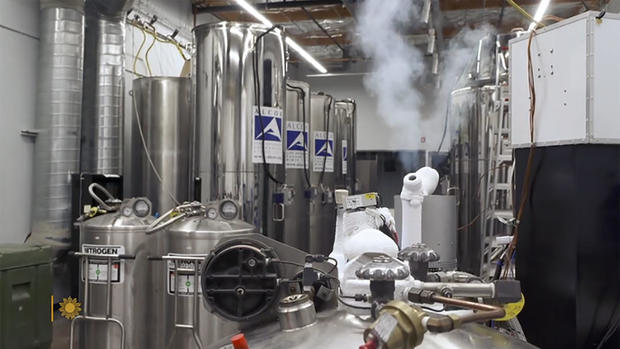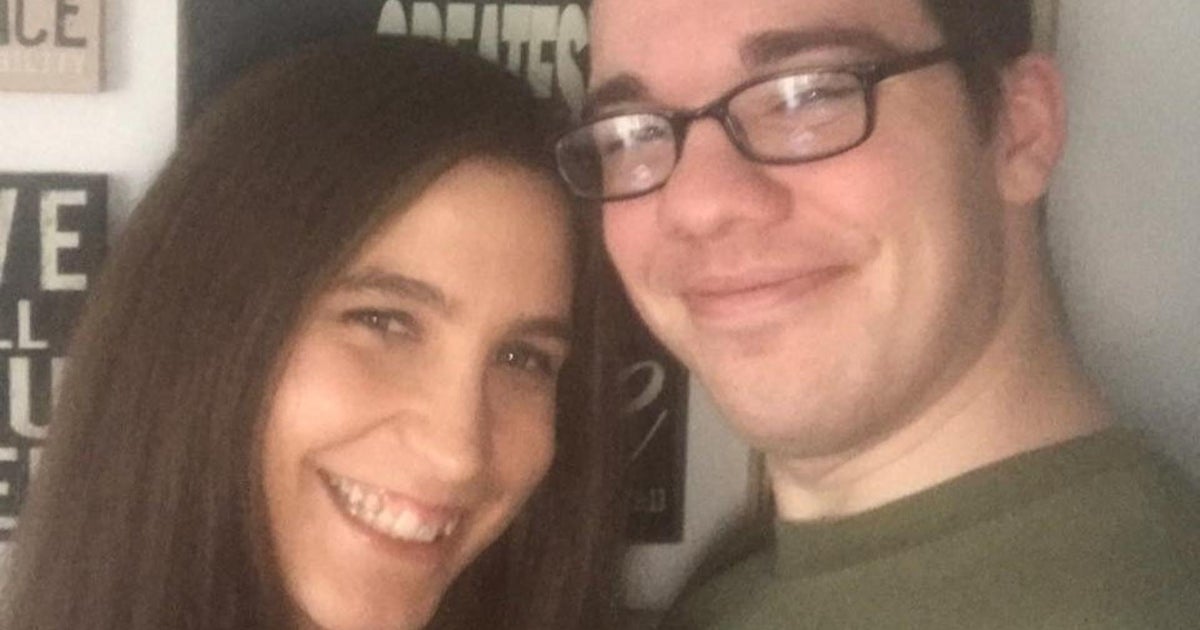Cryonics: Putting your future plans for life on ice
Nestled in the picturesque landscape of the Arizona desert is a very non-picturesque office park, in Scottsdale, where the Alcor Corporation says they may have found the secret to eternal life.
Max More is the former president and CEO of Alcor, a non-profit that offers to cryogenically freeze your body upon your death, by placing you in a large stainless steel tank in liquid nitrogen, and keep you there for as long as it takes for "scientists of the future" to bring you back.
"It's basically conservative medicine, odd as that might sound for something kind of radical, it's conservative medicine," More said.
Correspondent Luke Burbank asked, "I think it's interesting that the terminology that you use here at Alcor to describe the remains of people that are in here as 'patients.'"
"That's what they are, as far as we're concerned," More said. "They're not dead. They're not alive, but they're not dead. So, I think of them really as patients in a long-term coma."
In the patient storage room, with the tanks holding Alcor's nearly 200 very patient members, their newest arrival was getting the Alcor treatment.
"We just had a patient come in in the last day or two, in this case it's a neuro patient, which is the brain plus the skull," said More. "They're being cooled down to -320° Fahrenheit, very carefully, under computer control."
When an Alcor member signs up, they agree to pay either $200,000 for their entire body, or $80,000 for just their head to be preserved. More said, "This stage is kind of like donating organs. You want to keep the tissues fresh and viable."
"So, you're essentially trying to work against nature's process at this point – rigor mortis and the like?" asked Burbank.
"Exactly."
For what it's worth, More and his wife are true believers, scheduled to be preserved by Alcor when they pass away – at which time they'll join their goldendoodle, Oscar, one of 90 pets already frozen at the facility.
But it's not always that idyllic. Among the patients here is baseball Hall of Famer Ted Williams, whose membership at Alcor resulted in a very public legal battle between family members about his true wishes.
And many of Alcor's 1,200 or so members use life insurance policies to pay for the service, which may not always sit right with relatives and potential heirs.
Nita Faraday, a neuroethicist who teaches law and philosophy at Duke University, said, "It is problematic if you're talking about huge sums of money and if you're talking about somebody signing over, for example, their life insurance policy against the wishes of their family, for a completely unproven scientific technology."
Faraday said a big question is if you'd still be the same person once your brain was turned back on? "You can imagine a future in which the biological reboot of the body would just be cells functioning without any of the person actually brought back," she said.
Richard Leis has all of these questions as well: "It's unlikely that these technologies will be available to us, and that we'll be revived," he told Burbank.
Neuroscientists say we are still hundreds of years away, but that didn't stop Leis from signing up for Alcor 18 years ago, using a life insurance policy. "I hope that it's me, this person I am today," he said. "At the same time, if it's not, then I wish that person well, who is revived."
Future Richard? "Future Richard! And I hope all goes well," he laughed.
For more info:
Story produced by John Goodwin. Editor: Ben McCormick.




